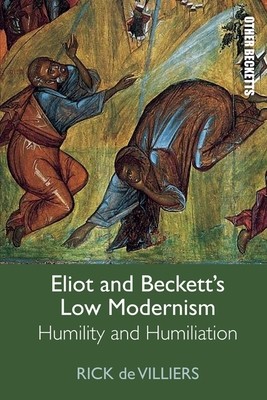
- We will send in 10–14 business days.
- Author: Rick de Villiers
- Publisher: Edinburgh University Press
- ISBN-10: 1474479030
- ISBN-13: 9781474479035
- Format: 15.6 x 23.4 x 1.6 cm, hardcover
- Language: English
- SAVE -10% with code: EXTRA
Reviews
Description
Humility and humiliation have an awkward, often unacknowledged intimacy. Humility may be a queenly, cardinal or monkish virtue, while humiliation points to an affective state at the extreme end of shame. Yet a shared etymology links the words to lowliness and, further down, to the earth. As this study suggests, like the terms in question, T. S. Eliot and Samuel Beckett share an imperfect likeness. Between them is a common interest in states of abjection, shame and suffering - and possible responses to such states. Tracing the relation between negative affect, ethics, and aesthetics, Eliot and Beckett's Low Modernism demonstrates how these two major modernists recuperate the affinity between humility and humiliation - concepts whose definitions have largely been determined by philosophy and theology.
EXTRA 10 % discount with code: EXTRA
The promotion ends in 19d.06:29:08
The discount code is valid when purchasing from 10 €. Discounts do not stack.
- Author: Rick de Villiers
- Publisher: Edinburgh University Press
- ISBN-10: 1474479030
- ISBN-13: 9781474479035
- Format: 15.6 x 23.4 x 1.6 cm, hardcover
- Language: English English
Humility and humiliation have an awkward, often unacknowledged intimacy. Humility may be a queenly, cardinal or monkish virtue, while humiliation points to an affective state at the extreme end of shame. Yet a shared etymology links the words to lowliness and, further down, to the earth. As this study suggests, like the terms in question, T. S. Eliot and Samuel Beckett share an imperfect likeness. Between them is a common interest in states of abjection, shame and suffering - and possible responses to such states. Tracing the relation between negative affect, ethics, and aesthetics, Eliot and Beckett's Low Modernism demonstrates how these two major modernists recuperate the affinity between humility and humiliation - concepts whose definitions have largely been determined by philosophy and theology.


Reviews